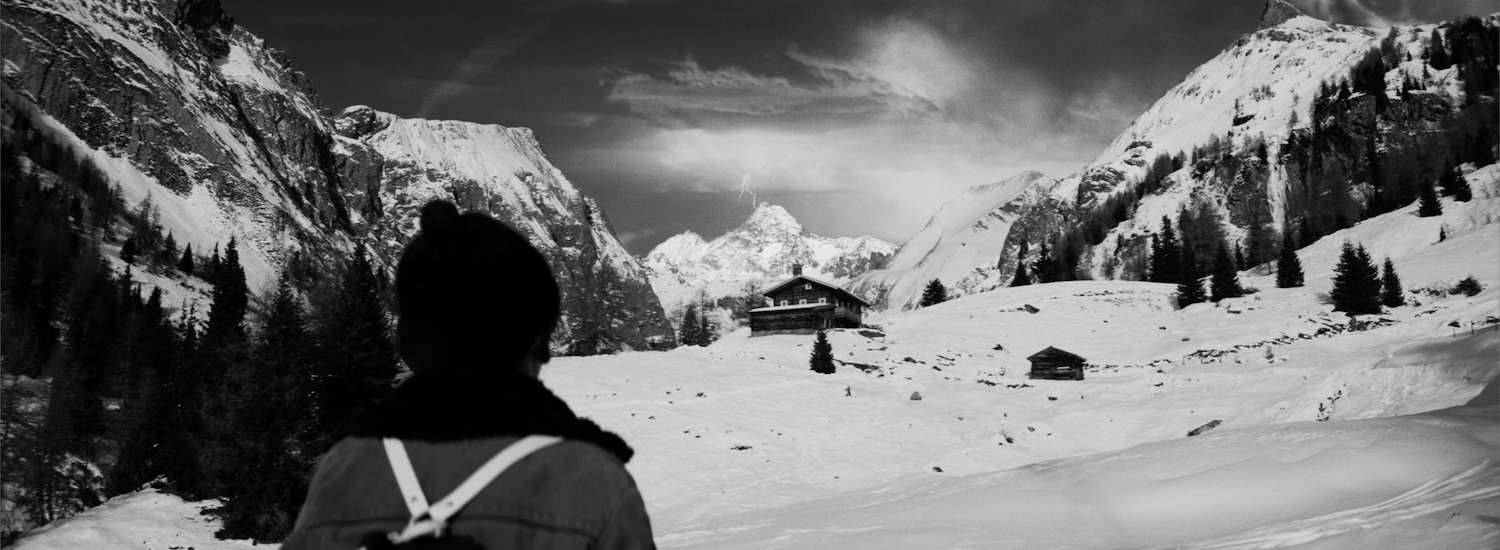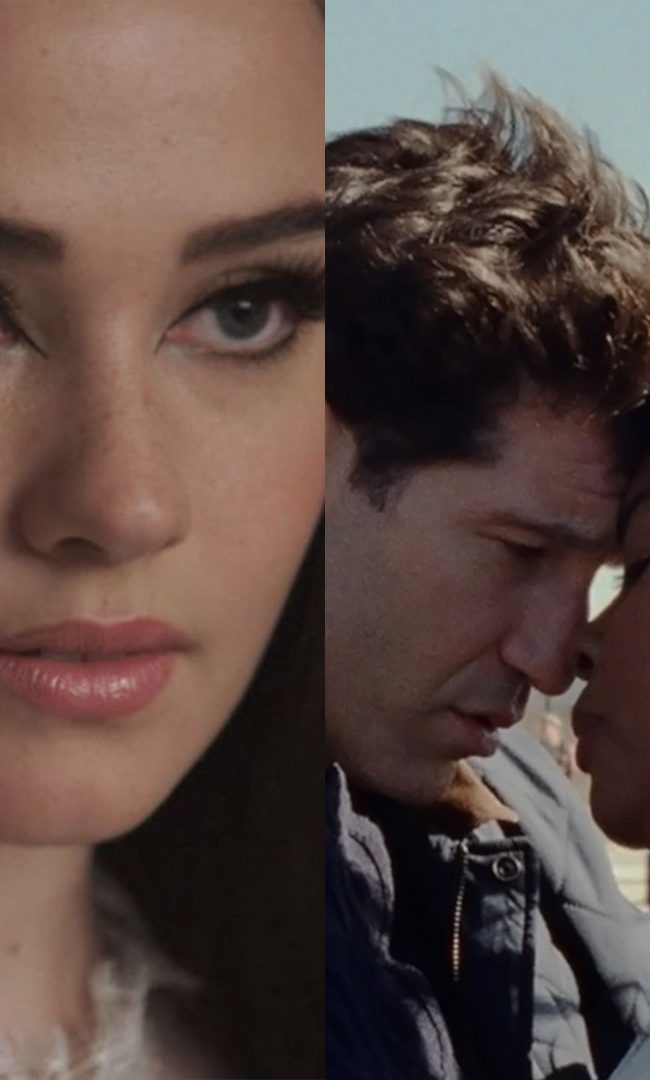THE UNIVERSAL THEORY

(Check out Chris Reed’s The Universal Theory movie review. It hits theaters Friday, September 27 via Oscilloscope Laboratories. Seen it? Join the conversation with HtN on our Letterboxd Page.)
The Universal Theory opens in 1974, in Hamburg, Germany, as a talk-show host invites a 44-year-old writer to join him and his other guests on set. The subject under discussion is the novel that said author—Johannes Leinert—has just published. It bears the same title as our movie, and is billed as science fiction. Except that Herr Leinert maintains that the story is, in fact, all true. When the host mocks him for taking that stance, Leinert storms off.
So begins this intriguing new film, co-written and directed by Timm Kröger (The Council of Birds), in which we follow the adventures of our protagonist a decade prior to the television debacle. As a young would-be physicist, he travels with his dissertation advisor, Dr. Strathen, from their native Germany to the Swiss Alps, where the events that will make up the thread of his eventual true-life book take place. Early 1960s Switzerland is not necessarily where one might imagine multiple universes to come together, but that’s what we find when we get there.
As it turns out, Leinert (Jan Bülow, Lindenberg! Mach dein Ding) is working on a theory of the multiverse, much to the chagrin of Strathen (Hanns Zischler, Black Box), though the latter’s longtime rival, Prof. Blumberg (Gottfried Breitfuss, Till the End of Night), takes a kindlier view. They all three travel by train to a conference where an Iranian scholar will give the keynote address. Once they arrive at their mountain terminus, nothing goes as planned.
As Leinert works to address Strathen’s copious notes, he meets a young French (or Franco-Swiss) pianist, Karin (Olivia Ross, The Old Guard), who appears to know him from somewhere. He is drawn to her, as well, though without that sense of déjà vu. Soon, their lives intertwine in ever more mysterious ways, as shadowy forces in the background come and go.
Embedded in the story is the still relatively recent trauma (at that time) of World War II and the Holocaust, though Kröger keeps related details more as subtext than main plot points. But the history of mass murder haunts the proceedings. Death is never far from the surface. And it’s not just because of the constant avalanches.
Other characters include a young boy and girl who have seen something dangerous up in the snowy peaks, suffering as a result. Blumberg also comes to harm. In fact, his corpse shows up in the snow. Or does it? Not long afterwards, he is up and about. The police are stymied.
As, it appears, is Leinert, though his investigations lead him to the discovery of an answer to his theories. Or maybe he just develops new questions. To solve the riddle, he must go inside the mountain, source of the tremors, where what he finds is both what he sought and something far worse.
Kröger and cinematographer Roland Stuprich photograph the entire movie—beyond the first scene—in crisp black-and-white images. The result is an austere beauty befitting of this combination sci-fi/romantic drama. The evocative soundtrack, mostly from composer Diego Ramos Rodriguez, with an additional melody from Viola Hammer and David Schweighart, adds alternatingly lush and melancholy notes. The overall technical and artistic elements of the film are top-notch, throughout.
If parts of the screenplay remain abstruse, even by the end, the movie still packs a powerful narrative punch. The journey is the reward, more than the destination. Plus, in The Universal Theory, not only may there be more than one universe to consider, but more than one interpretation. All hail these multiple worlds.
– Christopher Llewellyn Reed (@ChrisReedFilm)
Oscilloscope Laboratories; Timm Kröger; The Universal Theory










